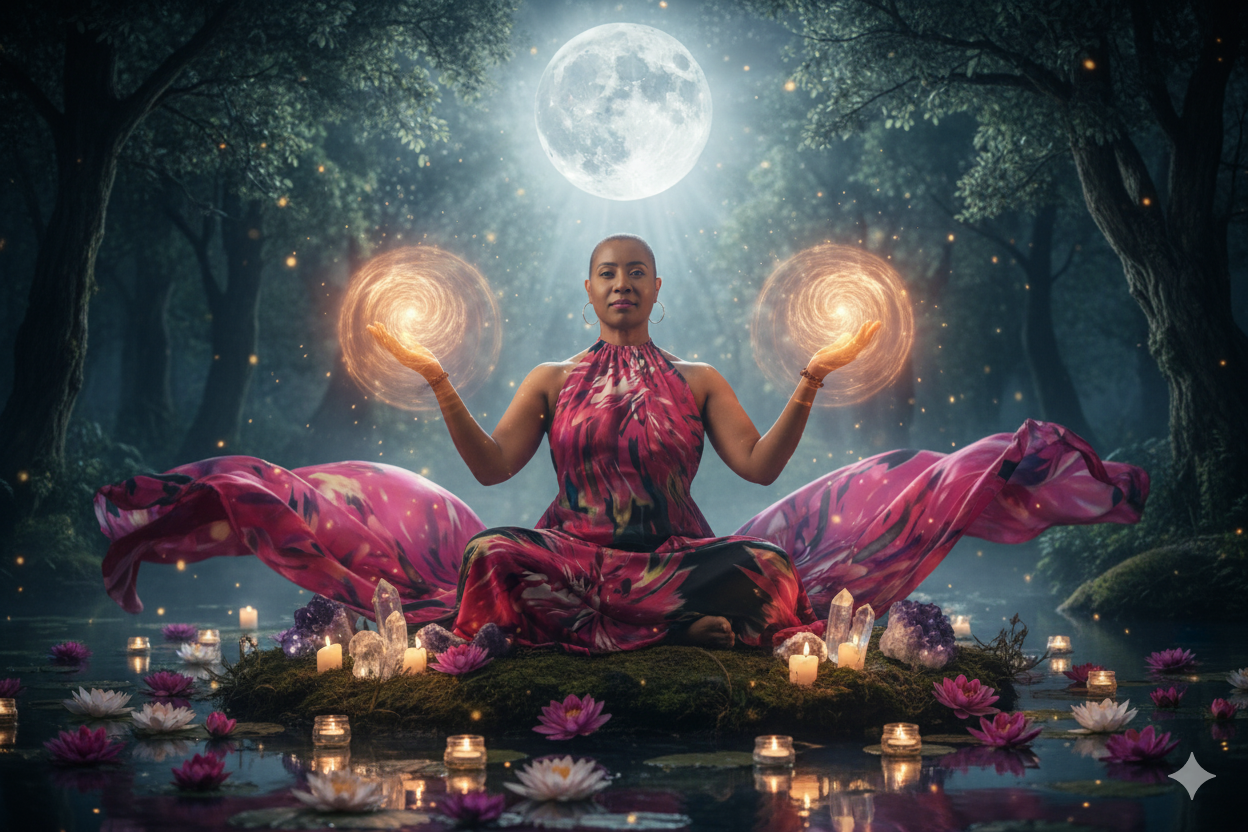Sacred Wellness Alchemist
Ancient Beauty • Energy • Soul Nourishment
Rooted in Spirit, Guided by Nature
A soul-nourishing space for spiritual wellness, ancestral healing, emotional release, and intuitive guidance — woven with the wisdom of herbs, energy, and ritual.
What is Sacred Wellness Alchemy?
It’s the art of turning pain into power, disconnection into remembrance, and imbalance into radiance.
It’s the way I walk with women who are ready to return to their true rhythm — through skin, spirit, soul, and sacred self-care.
I’ve lived this path through heart failure, trauma, and spiritual awakening — and now I offer the tools, rituals, and ancient wisdom that brought me home to myself.
If that’s what you’re seeking…
I’m ready when you are. 💫
My Approach
At Holistic Wellness Beauty, I guide others through a sacred path of purification and transformation — not just external beauty, but inner alchemy. As your Sacred Wellness Alchemist, my mission is to weave ancient beauty, energy, and soul nourishment into every healing session, product, and ritual.
Healing begins within and radiates outward — through clearing, energetic realignment, nourishment, and remembrance. My work doesn’t just mask symptoms; it returns you to vibrant alignment, rooted in ancient wisdom.
My own journey through fear, grief, and disconnection became a gateway to deep healing through faith, food, movement, ritual, and remembrance. Today, I offer this lived wisdom in every wellness session, tea blend, and course I create.
Here, healing is not a trend—it’s a return. A return to your body. A return to your inner knowing. A return to the beauty that has always lived inside of you.
Whether intuition led you here, your body feels out of rhythm, or your spirit is simply craving something deeper—we welcome you. At Holistic Wellness Beauty in Dallas, Dr. Crystal offers a sacred approach to healing through whole-body purification, blending natural detox teas, scalp care, and personalized wellness rituals. This work is not just about relieving symptoms—it’s about clearing what no longer serves so you can return to your most radiant, aligned self.
Dream it…
Envision the life you desire — one of inner & outer radiance, aligned energy, soulful nourishment, and boundless joy.
live it…
Step into your power. Let your body, spirit, and skin remember. At Holistic Wellness Beauty, healing is more than transformation — it’s sacred alchemy.
I invite you to walk this path with me — to rise, remember, and radiate.
Dr. Crystal G.




